J S Casshyap
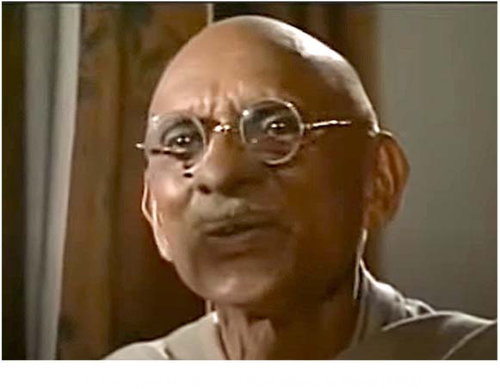
Subscribe to read full article
This section is for paid subscribers only. Our subscription is only $37/- for one full year.
You get unlimited access to all paid section and features on the website with this subscription.
Not ready for a full subscription?
You can access this article for $2 , and have it saved to your account for one year.
- Died: 12 March 1976
- Primary Cinema: Hindi
Writer, actor and director J S Casshyap (Jamuna Swaroop Kashyap Naatwan), synonymous with the Himanshu Rai-Devika Rani-owned pioneering studio Bombay Talkies, is known for films such as Jeevan Naya (1936), Janmabhoomi (1936), Achhut Kanya (1936), Nine Hours to Rama (1963), Bahut Din Huwe... (1954) and Mem Sahib (1956).
Among his early work, he penned the dialogue and also acted in the film Jawani Ki Hawa in 1935. This Bombay Talkies film, directed by Franz Osten, was co-written by S I Hassan and Niranjan Pal. A romantic crime thriller, it depicted the tale of Kamala (Devika Rani) who elopes on her wedding day with her childhood friend Ratanlal (Najmul Hussain). The couple is chased by her father Manganlal, who catches them on a train. An angry exchange ensues between Maganlal and Ratanlal; soon the sound of gunfire pierces the air. In the mysterious gloom of the evening, a body is thrown off the train. The suspects for the crime are Ratanlal, who is unable to furnish an alibi, Kamala, who insists she is the murderer, ex-convict Sukhdev, who confesses to the murder claiming robbery to be the motive, and the lunatic Tarachand, who also admits his guilt.
The following year, along with Niranjan Pal, he penned Jeevan Naya (1936), directed by Franz Osten. It told the tale of Lata (Devika Rani), daughter of a dancing girl, who is brought up by social worker Mathuradas (Prasad). She is engaged to marry the wealthy Ranjit (Ashok Kumar); however, the villain Chand (S N Tripathi) arrives to blackmail her about her undisclosed ancestry. Forced to disclose the truth to Ranjit and the assembled wedding guests, she is disowned by the bridegroom. Later, Ranjit, blinded by an explosion, is nursed back to health by a devoted woman who turns out to be his wife.
Along with Pal, he wrote Hindi cinema’s first patriotic film, Janma Bhoomi (1936), which included the nationalist song Jai jai janani janmabhoomi. Starring Devika Rani, Ashok Kumar and Pramila, it was a nationalist rural drama about Dr Ajay Ghosh and his girlfriend Protima who are working to improve the lives of Indian villagers. They incur the enmity of the local zamindar and his vicious, scheming henchman Sanatan. Eventually, Ajay's relentless goodness persuades the zamindar to bequeath his property to the hero. General well-being reigns as class conflict is replaced by class collaboration.
He penned the dialogue for the iconic Achhut Kanya (1936), written by Pal and Rai and starring Devika Rani and Ashok Kumar. The romantic drama directed by Franz Osten, revolved around an ‘untouchable’ girl and a Brahmin boy who fall in love, but the strict caste system and the gossip of the villagers threaten to keep them apart.
He would go on to pen the dialogues for films such as Jeevan Prabhat (1937), Savitri (1937), Nirmala (1938), Nav Jeevan (1939), Adhuri Kahani (1939), Bandhan (1940), Azad (1940), Naya Sansar (1941), and the Amiya Chakrabarty-directed Anjan (1941), all Bombay Talkies productions. After a considerable break, he went on to pen other productions. The adventure drama fantasy Bahut Din Huwe…(1954), which he wrote along with Gaurishankar Asopa and Pandit Indra, was produced by Gemini studios. It was directed by S S Vasan and starred Madhubala. It received lukewarm reviews from critics upon its release and was not a commercial success; however, it went on to celebrate a silver jubilee in erstwhile Poona.
The romantic comedy Mem Sahib (1956), for which he wrote dialogues, was co-written by Ramanand Sagar and R C Talwar. Directed by Talwar and starring Meena Kumari, Shammi Kapoor and Pratima Devi, the plot revolved around a wealthy woman who chooses her own mate and refuses to marry the man chosen by her deceased father.
Onscreen, he acted mainly in south production such as Apoorva Sahodarargal (1949), Nishan (1949), Sansar (1951), as well as Nine Hours To Rama (1963. Of these, the film that garnered him the most attention was Nine Hours To Rama, a British-American neo-noir crime production which was a fictional narrative of Hindu militant activist Nathuram Godse’s plan to kill Mahatma Gandhi and of police officer Gopal Das’ task to find the killer before it’s too late. Directed by Mark Robson, Casshyap played Gandhi in the film, of which an article in Time magazine states, “The best part of this 125-minute film about the assassination of Mahatma Gandhi is the 20 minutes that focus on the saintly man himself. The rest is pure Hollywood-on-the-Ganges.”
It goes on to add, “J S Casshyap, the Indian actor who plays the Mahatma, not only has the emaciated physique and the down-to-perfection gestures, but also has re-created Gandhi's speech—the faltering, reedy tones and the gentle inflections that were so much the secret of the leader's non violent power. Closeups of Casshyap are startling, and a soaring overhead shot, as he walks feebly through the crowd of devotees who have jammed the garden to hear him at prayer, has an immediacy that is more newsreel than make-believe. In the garden the assassin's bullets strike him down, and here Nine Hours to Rama should have ended. Perhaps it never should have begun. To try to tell the story of Gandhi's assassination in terms of a suspense thriller is like making a movie about Lincoln and leading the audience to believe he may die of old age.”
His Bombay Talkies’ directorial Anyaya (1949) starred Devika Rani and Ashok Kumar, along with Kishore Sahu and Mumtaz Ali. Casshyap had also penned the screenplay and dialogues for the film.
In 1961, he is credited with producing Piya Milan Ki Aas. Directed by S N Tripathi, the cast comprised Manoj Kumar, Ameeta and Jeevan Dhar.
-
Filmography (5)
SortRole
-
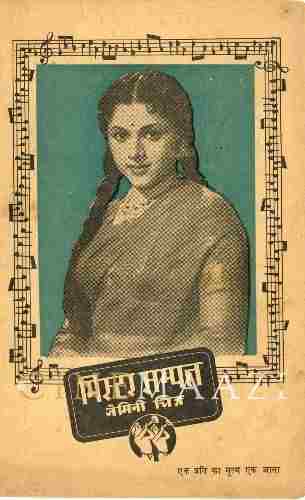
Mr. Sampat 1952
-
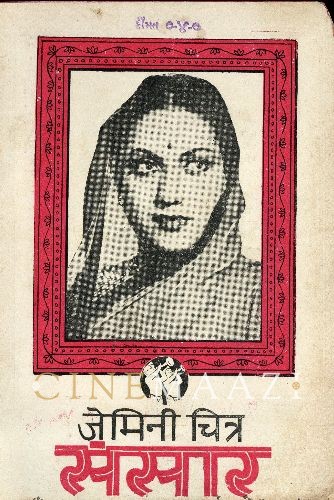
Sansar 1951
-
Sansaar 1951
-
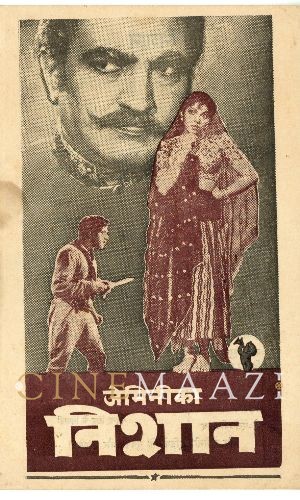
Nishan 1949
-
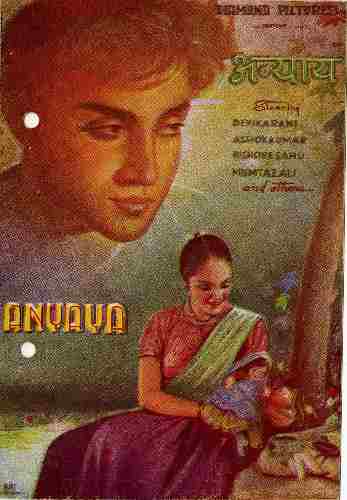
Anyaya 1949
-



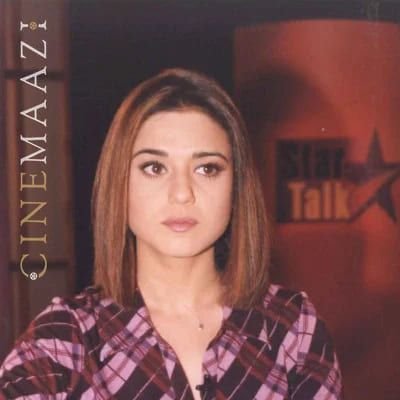
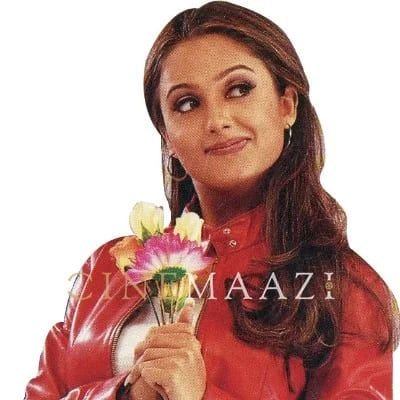
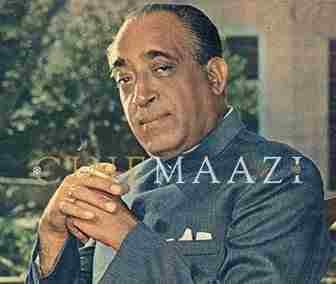

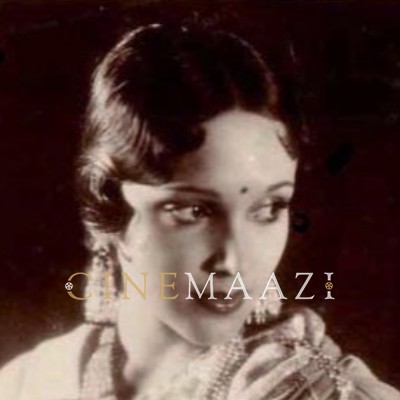

.jpg)



